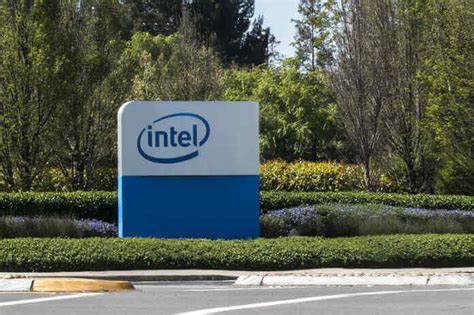Intel, a dominant force in the semiconductor industry, has historically enjoyed a significant advantage over its competitors, particularly in its ability to navigate the complex landscape of business relations with China. While many firms faced legal barriers that restricted their dealings with China, Intel managed to continue operations to some extent. However, the company recently encountered a significant setback when it lost its license from the U.S. government to conduct business in China. This unexpected development, coupled with the potential revenue implications, sent shockwaves through the market, resulting in a nearly 3% drop in Intel’s stock price during Wednesday afternoon trading.
Amidst the uncertainty surrounding the license revocation, speculation ran rampant about the specific impact on Intel’s operations. Although not all of the company’s export licenses were revoked, Intel opted to remain tight-lipped regarding which entities would no longer have access to its high-end processors. In a parallel development, reports surfaced indicating that Qualcomm, another heavyweight in the semiconductor industry, also experienced license cancellations. The timing of these revocations coincided with the recent launch of Huawei’s MateBook X Pro, its first AI-enabled laptop. Given the ongoing geopolitical tensions and U.S. efforts to restrict Huawei’s access to critical technologies, it is plausible that political pressure played a pivotal role in these decisions.
In response to the license revocations, Intel was compelled to revise its earnings guidance, acknowledging the adverse impact on its market presence. The revised guidance indicated that revenue for the current quarter is expected to fall below the midpoint of the original range, which had been projected to be between $12.5 billion and $13.5 billion. Despite this setback, Intel remains cautiously optimistic about its full-year revenue and earnings prospects, expressing confidence that they will surpass the levels achieved in 2023.
Looking ahead, Intel anticipates leveraging technological advancements such as the Gaudi 3 to fuel future growth and regain its competitive edge. However, initial projections may have fallen short compared to industry rivals like Nvidia, prompting the company to recalibrate its strategies and adapt to the evolving market dynamics. As Intel navigates the challenges posed by the loss of its China license, investors and industry observers remain vigilant, closely monitoring the company’s strategic moves and their impact on its long-term trajectory in the semiconductor landscape.
